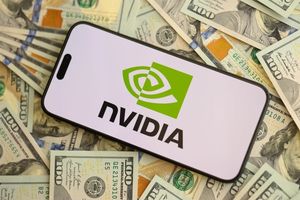
Mumbai, India – November 11, 2025 – Tata Consultancy Services (TCS) (NSE: TCS), a global leader in IT services, consulting, and business solutions, is making significant strides in addressing the insatiable compute and performance demands of Artificial Intelligence (AI) in data centers. With the recent launch of its Chiplet-based System Engineering Services in September 2025, TCS is strategically positioning itself at the forefront of a transformative wave in semiconductor design, leveraging modular chiplet technology to power the future of AI.
This pivotal move by TCS underscores a fundamental shift in how advanced processors are conceived and built, moving away from monolithic designs towards a more agile, efficient, and powerful chiplet architecture. This innovation is not merely incremental; it promises to unlock unprecedented levels of performance, scalability, and energy efficiency crucial for the ever-growing complexity of AI workloads, from large language models to sophisticated computer vision applications that are rapidly becoming the backbone of modern enterprise and cloud infrastructure.
Engineering the Future: TCS's Chiplet Design Prowess
TCS's Chiplet-based System Engineering Services offer a comprehensive suite of solutions tailored to assist semiconductor companies in navigating the complexities of this new design paradigm. Their offerings span the entire lifecycle of chiplet integration, beginning with robust Design and Verification support for industry standards like Universal Chiplet Interconnect Express (UCIe) and High Bandwidth Memory (HBM), which are critical for seamless communication and high-speed data transfer between chiplets.
Furthermore, TCS provides expertise in cutting-edge Advanced Packaging Solutions, including 2.5D and 3D interposers and multi-layer organic substrates. These advanced packaging techniques are essential for physically connecting diverse chiplets into a cohesive, high-performance package, minimizing latency and maximizing data throughput. Leveraging over two decades of experience in the semiconductor industry, TCS offers End-to-End Expertise, guiding clients from initial concept to final tapeout. This holistic approach significantly differs from traditional monolithic chip design, where an entire system-on-chip (SoC) is fabricated on a single piece of silicon. Chiplets, by contrast, allow for the integration of specialized functional blocks – such as AI accelerators, CPU cores, memory controllers, and I/O interfaces – each optimized for its specific task and potentially manufactured using different process nodes. This modularity not only enhances overall performance and scalability, allowing for custom tailoring to specific AI tasks, but also drastically improves manufacturing yields by reducing the impact of defects across smaller, individual components.
Initial reactions from the AI research community and industry experts confirm that chiplets are not just a passing trend but a critical evolution. This modular approach is seen as a key enabler for pushing beyond the limitations of Moore's Law, providing a viable pathway for continued performance scaling, cost efficiency, and energy reduction—all paramount for the sustainable growth of AI. TCS's strategic entry into this specialized service area is welcomed as it provides much-needed engineering support for companies looking to capitalize on this transformative technology.
Reshaping the AI Competitive Landscape
The advent of widespread chiplet adoption, championed by players like TCS, carries significant implications for AI companies, tech giants, and startups alike. Companies that stand to benefit most are semiconductor manufacturers looking to design next-generation AI processors, hyperscale data center operators aiming for optimized infrastructure, and AI developers seeking more powerful and efficient hardware.
For major AI labs and tech companies, the competitive implications are profound. Firms like Intel (NASDAQ: INTC) and NVIDIA (NASDAQ: NVDA), who have been pioneering chiplet-based designs in their CPUs and GPUs for years, will find their existing strategies validated and potentially accelerated by broader ecosystem support. TCS's services can help smaller or emerging semiconductor companies to rapidly adopt chiplet architectures, democratizing access to advanced chip design capabilities and fostering innovation across the board. TCS's recent partnership with a leading North American semiconductor firm to streamline the integration of diverse chip types for AI processors is a testament to this, significantly reducing delivery timelines. Furthermore, TCS's collaboration with Salesforce (NYSE: CRM) in February 2025 to develop AI-driven solutions for the manufacturing and semiconductor sectors, including a "Semiconductor Sales Accelerator," highlights how chiplet expertise can be integrated into broader enterprise AI strategies.
This development poses a potential disruption to existing products or services that rely heavily on monolithic chip designs, particularly if they struggle to match the performance and cost-efficiency of chiplet-based alternatives. Companies that can effectively leverage chiplet technology will gain a substantial market positioning and strategic advantage, enabling them to offer more powerful, flexible, and cost-effective AI solutions. TCS, through its deep collaborations with industry leaders like Intel and NVIDIA, is not just a service provider but an integral part of an ecosystem that is defining the next generation of AI hardware.
Wider Significance in the AI Epoch
TCS's focus on chiplet-based design is not an isolated event but fits squarely into the broader AI landscape and current technological trends. It represents a critical response to the escalating computational demands of AI, which have grown exponentially, often outstripping the capabilities of traditional monolithic chip architectures. This approach is poised to fuel the hardware innovation necessary to sustain the rapid advancement of artificial intelligence, providing the underlying muscle for increasingly complex models and applications.
The impact extends to democratizing chip design, as the modular nature of chiplets allows for greater flexibility and customization, potentially lowering the barrier to entry for smaller firms to create specialized AI hardware. This flexibility is crucial for addressing AI's diverse computational needs, enabling the creation of customized silicon solutions that are specifically optimized for various AI workloads, from inference at the edge to massive-scale training in the cloud. This strategy is also instrumental in overcoming the limitations of Moore's Law, which has seen traditional transistor scaling face increasing physical and economic hurdles. Chiplets offer a viable and sustainable path to continue performance, cost, and energy scaling for the increasingly complex AI models that define our technological future.
Potential concerns, however, revolve around the complexity of integrating chiplets from different vendors, ensuring robust interoperability, and managing the sophisticated supply chains required for heterogeneous integration. Despite these challenges, the industry consensus is that chiplets represent a fundamental transformation, akin to previous architectural shifts in computing that have paved the way for new eras of innovation.
The Horizon: Future Developments and Predictions
Looking ahead, the trajectory for chiplet-based designs in AI is set for rapid expansion. In the near-term, we can expect continued advancements in standardization protocols like UCIe, which will further streamline the integration of chiplets from various manufacturers. There will also be a surge in the development of highly specialized chiplets, each optimized for specific AI tasks—think dedicated matrix multiplication units, neural network accelerators, or sophisticated memory controllers that can be seamlessly integrated into custom AI processors.
Potential applications and use cases on the horizon are vast, ranging from ultra-efficient AI inference engines for autonomous vehicles and smart devices at the edge, to massively parallel training systems in data centers capable of handling exascale AI models. Chiplets will enable customized silicon for a myriad of AI applications, offering unparalleled performance and power efficiency. However, challenges that need to be addressed include perfecting thermal management within densely packed chiplet packages, developing more sophisticated Electronic Design Automation (EDA) tools to manage the increased design complexity, and ensuring robust testing and verification methodologies for multi-chiplet systems.
Experts predict that chiplet architectures will become the dominant design methodology for high-performance computing and AI processors in the coming years. This shift will enable a new era of innovation, where designers can mix and match the best components from different sources to create highly optimized and cost-effective solutions. We can anticipate an acceleration in the development of open standards and a collaborative ecosystem where different companies contribute specialized chiplets to a common pool, fostering unprecedented levels of innovation.
A New Era of AI Hardware
TCS's strategic embrace of chiplet-based design marks a significant milestone in the evolution of AI hardware. The launch of their Chiplet-based System Engineering Services in September 2025 is a clear signal of their intent to be a key enabler in this transformative journey. The key takeaway is clear: chiplets are no longer a niche technology but an essential architectural foundation for meeting the escalating demands of AI, particularly within data centers.
This development's significance in AI history cannot be overstated. It represents a critical step towards sustainable growth for AI, offering a pathway to build more powerful, efficient, and cost-effective systems that can handle the ever-increasing complexity of AI models. It addresses the physical and economic limitations of traditional chip design, paving the way for innovations that will define the next generation of artificial intelligence.
In the coming weeks and months, the industry should watch for further partnerships and collaborations in the chiplet ecosystem, advancements in packaging technologies, and the emergence of new, highly specialized chiplet-based AI accelerators. As AI continues its rapid expansion, the modular, flexible, and powerful nature of chiplet designs, championed by companies like TCS, will be instrumental in shaping the future of intelligent systems.
This content is intended for informational purposes only and represents analysis of current AI developments.
TokenRing AI delivers enterprise-grade solutions for multi-agent AI workflow orchestration, AI-powered development tools, and seamless remote collaboration platforms.
For more information, visit https://www.tokenring.ai/.





